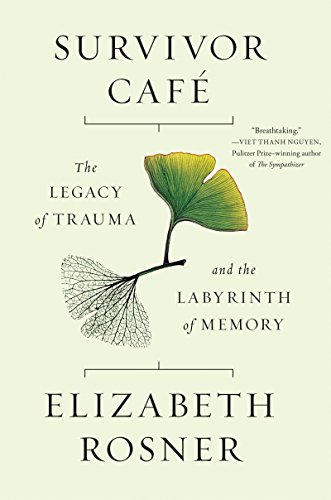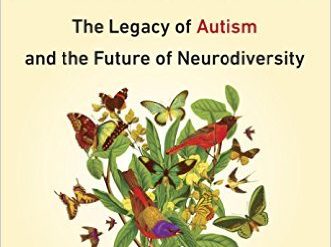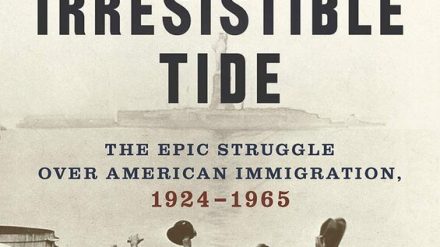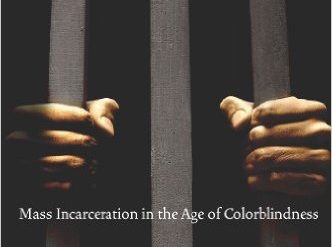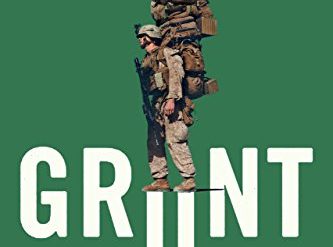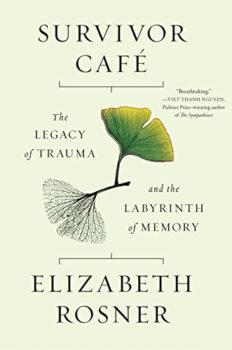
I carry the words; I pass them on. I listen to the stories and tell them again.” Thus writes Berkeley novelist and poet Elizabeth Rosner in her deeply moving new memoir, Survivor Café: The Legacy of Trauma and the Labyrinth of Memory. The stories are the recollections of Rosner’s parents, both of them Holocaust survivors, and of countless others she interviewed in researching the articles incorporated in this book. Interspersed among these sometimes shocking stories are accounts of her three visits to Buchenwald, where her father was imprisoned as a teenager during the last year of the war, and the United States Holocaust Memorial Museum in Washington, DC.
The phenomenon of inherited PTSD
Thus, Survivor Café is a memoir, but it is far more than that. Rosner set out to understand the impact of her parents’ experiences in the war on her own life. She read deeply in the literature about the Holocaust and about the phenomenon of epigenetics, “the study of environmentally induced changes passed down from one generation to the next.” This emerging field is controversial and its research easily overdramatized. However, interpreting the findings narrowly, Rosner found in it an explanation for her own deep feelings about the Holocaust—and those in other second- and third-generation offspring of survivors.
Survivor Café: The Legacy of Trauma and the Labyrinth of Memory by Elizabeth Rosner (2017) 304 pages ★★★★☆
As others have observed, the overwhelming majority of Holocaust survivors experienced PTSD in later life. And “PTSD, it turns out, has an impact on the very wiring of the brain, and these changes are transmitted to the offspring.” Rosner quotes a Viennese psychoanalyst “who used the term ‘transposition’ to describe the unconscious cross-generational transmission of massive trauma by Holocaust survivors.” I’m confident that this phenomenon is not universal, but I’m equally certain that it’s common. I’ve seen it in action.
For a discussion of recent research into epigenetics, see Benedict Carey’s article in the New York Times Science Section (December 11, 2018), “Can We Really Inherit Trauma?“
Beyond the Holocaust
In the United States today, “survivors” are often taken to mean those who directly experienced the Nazi Holocaust and lived to talk about it. When analysts broaden their scope, they might refer to other documented examples of genocide in the 20th century, most notably the Armenian, Cambodian, and Rwandan tragedies. In Survivor Café, Rosner further expands the term to encompass those who experienced the atomic bomb attacks on Hiroshima and Nagasaki as well as African American slavery, with brief references to other incidences of genocide. She also includes the Japanese internment in World War II, which was surely traumatic for those who experienced it though it did not directly lead to large loss of life. Those examples make her case.
However, Rosner includes many references to other, far different atrocities that led to inherited PTSD. She cites 9/11, the Sandy Hook school massacre, and the South Africa Truth and Reconciliation Commission, among others. Instead, to stick to a narrower interpretation of inherited PTSD that is limited to genocidal incidents, she might well have explored the subject with:
- survivors of the Ukraine famine in the 1930s
- China’s Great Leap Forward in the 1950s and 60s
- the Biafran war in the 1960s, the Bangladeshi war for independence in the 1970s
- and the ongoing civil wars in what is currently called the Democratic Republic of Congo
Every one of those events has caused the death of at least one million people, and most of them far more, leaving tens of millions of survivors. There are other, less dramatic examples of genocide as well. As so many observers have remarked, the last century was an extraordinarily violent time in human history.
A quirky chronology
Survivor Café is eloquently written and abounds with insight. Rosner has clearly thought deeply about her subject for a great many years, and she has conducted methodical research to flesh out her own perspective. However, in one respect the book is not an easy read: it clearly represents the author’s attempt to mesh together several previously published articles. The result is a quirky chronology, with Rosner’s account jumping from one decade to another and back again in a fashion that is disorienting at times. There is also some repetition, in which the same event or the same source is described in much the same fashion at two different points in her account. But it’s easy enough to shrug off these relatively minor problems. Survivor Café is, in the end, an illuminating piece of work and a worthy addition to the extensive literature of the Holocaust.
For related reading
I’ve found fiction to be a rich source of insight about the Holocaust. You might wish to see my review of All the Light We Cannot See, by Anthony Doerr, This novel richly deserves the Pulitzer Prize it won. You may also be interested in The German Girl by Armando Lucas Correa. My review is at A deeply affecting novel of the Holocaust. I’ve also reviewed The Book of Aron, by Jim Shepherd: A brilliant novel of the Warsaw Ghetto.
You’ll find this book listed on my post, 10 top nonfiction books about World War II.
You might also enjoy The 10 best novels about World War II.
This book is one of 14 excellent memoirs reviewed here. You might also enjoy Great biographies I’ve reviewed: my 10 favorites.
This is also one of the many Good books by Berkeley authors.
And you can always find my most popular reviews, and the most recent ones, on the Home Page.

